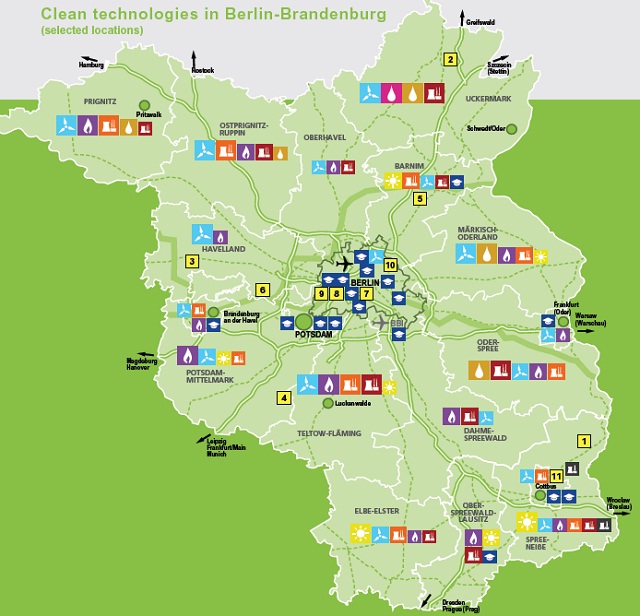
The Energiewende
In reality, the country may be well-endowed to varying degrees, with all forms of energy—from hydro power, coal, nuclear to wind and solar but some of them are “dirty” sources like coal which contributes almost 40% of all greenhouse gas emissions.
Germany has, however, since 1980 been making a shift away from fossil fuels to Green renewable energy supply under a programme popularly called ‘Energiewende’; a nationwide promise to shift to a low carbon, nuclear-free economy.
“It is a ‘grass-roots’ socially desired and politically directed shift towards energy efficiency, renewable energy supply and storage, with a smart electricity grid that enables demand flexibility,” says Andreas Kraemer, the founder of Ecologic Institute, a Berlin-based science and sustainable development policy think tank.
Kraemer who is now a senior fellow at the Institute of Advanced Sustainability Studies and the Canadian Centre for International Governance Innovation (CIGI) says Germany’s Energiewende is geared towards increasing energy security and creating new links between the energy and transport systems, electricity and gas, and between the electricity and heating systems.
Kraemer says Germany’s energy revolution has been influenced by the climate change phenomenon which is causing havoc in many economies of the developing world.
“Germans understand that even if climate change might not directly affect them as much as other countries, it will affect its trading partners’ stability,” he says.
It is under the same programme that Germany’s development bank, KfW, is helping Uganda finance its renewable energy projects, courtesy of the Get FiT (Global Energy Transfer Feed in Tariff), a programme which is geared towards contributing to Uganda’s energy transition by investing in clean, low-carbon and sustainable electricity projects around the country.
KfW recently co-financed the Soroti 10MW solar power plant in eastern Uganda which is capable of powering 40,000 homes, schools, and businesses in the area.
It is Uganda’s first private large scale solar power plant and was connected to the grid in November, last year. KfW has also shown interest in financing a number of mini hydropower plants on Uganda’s numerous rivers which would be capable of generating close to 160MW. Barbara Schäffer, an economist at the International Climate Initiative says financing projects in emerging and developing countries has grown from about €120m at the turn of the millennium to its current €500m per year. At the moment, Germany is funding projects in over 100 countries, including Uganda.
Germany also has a number of bilateral partnerships with almost every country in the world to facilitate renewable energy, facilitating technical cooperation in renewable energy transition.
As part of Germany’s commitment to the climate change agenda, the global headquarters of the United Nations Framework Convention on Climate Change (UNFCC) in Bonn is on behalf of the Pacific island of Fiji hosting about 25,000 delegates to the COP23 International Conference to thresh out details of how to implement the Paris Agreement on climate change.
Hosting the 25,000 delegates will cost about €150 million and Germany is footing the bill. For Marc Eichhorn, the head of the Climate, Environmental Policy and Sustainable Economy department at the Federal German Office in Berlin, it is probably the right thing to do because, Germany’s overall goal is clear.
“We try to convince others, not by lecturing them but we try to convince them by leading by example,” says Eichhorn , “We think that what we do brings a benefit in the end, not only to us if they join us on that path.”
Kraemer also says climate change-driven events around the world might harm political stability in many countries which in turn could result in loss of trade, induce migration, and ultimately cause conflict in Germany. He says the contribution of global warming to the various crises around the world is generally assumed if not always understood in Germany.
This understanding also explains the German government’s Climate Action Plan 2050, an ambitious programme which the government is implementing to reduce greenhouse gas emissions in sectors like power generation, agriculture and transport.
The country’s commitment under the Paris Agreement requires it to cut greenhouse gas emissions (from a 1990 baseline) to 40% by 2020, 55% by 2030 and up to 95% by 2050, with renewable energy representing 80% of Germany’s energy mix by the middle of the century. In order to reach this goal, Germany’s government has set halfway targets that are to be met in the next 13 years. Indeed, by 2022, the last nuclear plant will be switched off and taken off the national electricity grid.
 The Independent Uganda: You get the Truth we Pay the Price
The Independent Uganda: You get the Truth we Pay the Price



